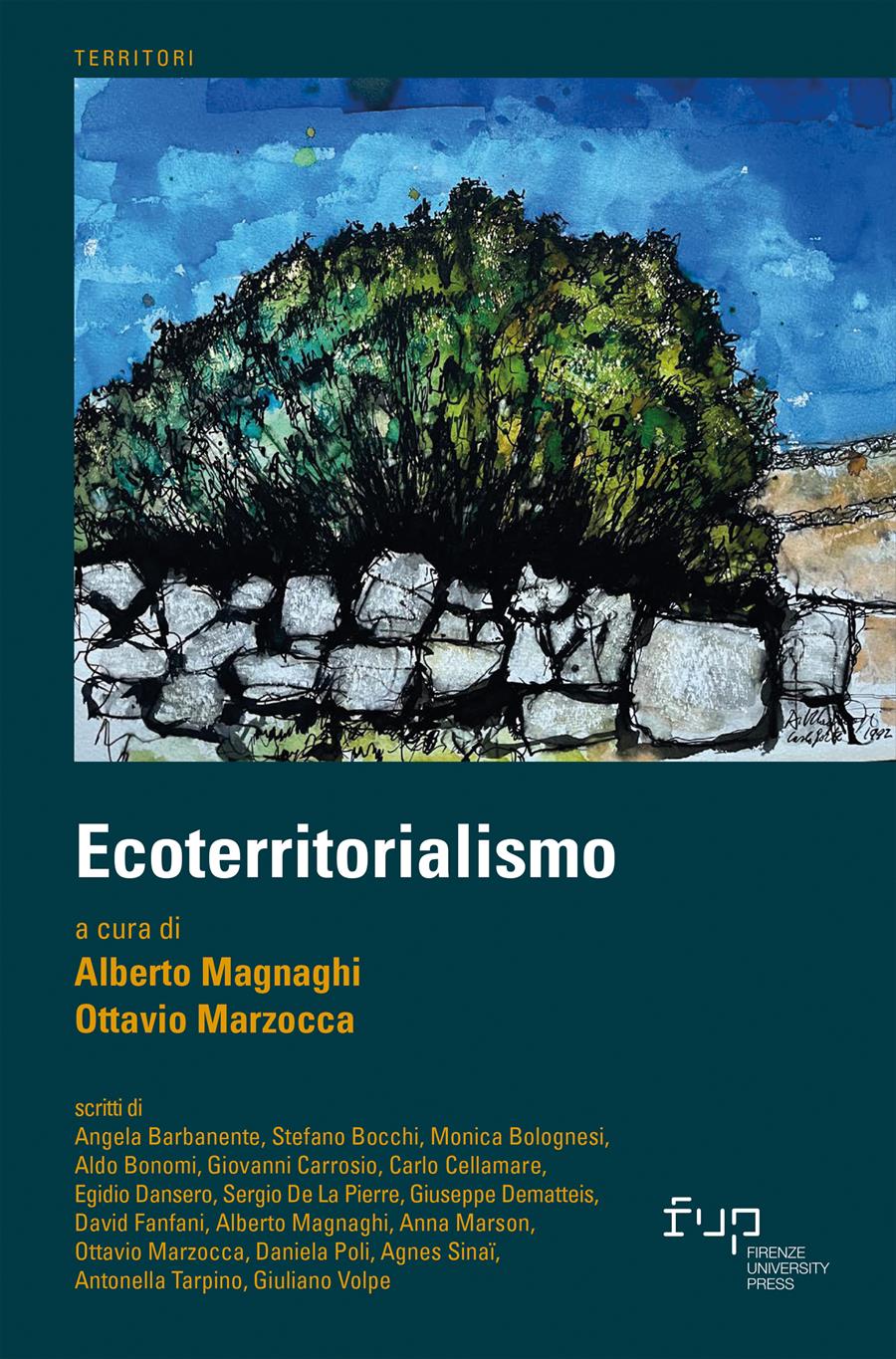- Ecoterritorialismo
- Edited by Alberto Magnaghi, Ottavio Marzocca
L’innovazione degli approcci sociologici per una prospettiva eco-territorialista
- Giovanni Carrosio
- © 2023 Author(s) |
- CC BY 4.0
- DOI: 10.36253/979-12-215-0116-2.09
Eco-territorialism focuses its proposal on the relationship between environmental issues and the territory. For sociology, this is a partly unprecedented challenge. Indeed, environmental sociology has never taken an explicit territorial posture, while territorial sociology has always considered the environment a physical extension that frames human actions. An eco-territorialist sociology, on the other hand, must focus on the logic of ecosystems interacting with society, looking at environmental crises place by place. In the chapter, three sociological perspectives are identified in order to recompose them in an eco-territorial key: Latour and Callon's Actor Network Theory, which reincorporates biophysical worlds and artefacts into agency; Ploeg's rural sociology, which looks at the co-evolution between social and ecological systems; Gough's eco-welfare, which points to a new welfare paradigm capable of sustaining itself outside of growth.
- Keywords:
- Eco-territorialist sociology,
- Actor Network Theory,
- repeasantization,
- co-evolution,
- eco-welfare.,
University of Trieste, Italy - ORCID: 0000-0003-2402-2645
- Bontempi M. (2017), “Reti di attanti. La concettualizzazione dell’agency e degli attori come effetti dei networks nell’Actor-Network Theory” Politica & Società, vol. 6, n. 1, pp. 7-30.
- Callon M. (2006), “Sociologie de l’acteur réseau”, in Akrich M., Callon M., Latour B., Sociologie de la traduction. Textes fondateurs, Les Presses MINES, Paris, pp. 267-276.
- Carrosio G. (2019), I margini al centro. L’Italia delle aree interne tra fragilità e innovazione, Donzelli, Roma.
- Corrado A. (2010), Il paradigma dei semi: crisi agro-alimentare e reti per un’altra agricoltura, Aracne, Roma.
- Goodman D., Redclift M.R. (1991 - a cura di), Environment and development in Latin America: the politics of sustainability, Manchester University Press, Manchester.
- Gough I. (2010), “Economic crisis, climate change and the future of welfare states”, Twenty-First Century Society, vol. 5, n. 1, pp. 51-64.
- Gough I. (2017), Heat, greed and human need. Climate change, capitalism and sustainable wellbeing, Edward Elgar, Cheltenham.
- Landowski E., Marrone G. (2002 - a cura di), La società degli oggetti: problemi di interoggettività (Vol. 10), Meltemi Editore, Milano.
- Latour B. (1994), “Une sociologie sans objet? Note théorique sur l’interobjectivité”, Sociologie du Travail, vol. 36, n. 4, pp. 587-607.
- Magnaghi A. (2020), Il principio territoriale, Bollati Boringhieri, Torino.
- Magnani N., Carrosio G. (2021), Understanding the Energy Transition. Civil society, territory and inequality in Italy, Palgrave Macmillan, London.
- Marletti C.A. (2015), Razionalità e valori: introduzione alle teorie dell’azione sociale, Laterza, Bari-Roma.
- Moore J.W. (2017), “The Capitalocene, Part I: on the nature and origins of our ecological crisis”, The Journal of Peasant Studies, vol. 44, n. 3, pp. 594-630.
- O’Connor J. (1991), “On the two contradictions of capitalism”, Capitalism Nature Socialism, vol. 2, n. 3, pp. 107-109.
- O’Neill M. (2020), “Power, predistribution, and social justice”, Philosophy, vol. 95, n. 1, pp. 63-91.
- Osti G. (2010), Sociologia del territorio, Il Mulino, Bologna.
- Osti G. (2013), “Scarsità del lavoro e crisi ecologica. L’urgenza di formulare i nostri scenari”, Aggiornamenti Sociali, vol. 64, n. 5, pp. 374-383.
- Pellizzoni L. (2011), Conflitti ambientali. Esperti, politica, istituzioni nelle controversie ecologiche, Il Mulino, Bologna.
- Pellizzoni L., Osti G. (2008). Sociologia dell’ambiente, Il Mulino, Bologna.
- Ploeg (van der) J.D. (2006), “Esiste un nuovo paradigma di sviluppo rurale?”, in Cavazzani A., Gaudio G., Sivini S. (a cura di), Politiche, governance e innovazione per le aree rurali, INEA - Edizioni Scientifiche Italiane, Napoli, pp. 343-353.
- Ploeg (van der) J.D. (2010), “The peasantries of the twenty-first century: the commoditisation debate revisited”, The Journal of Peasant Studies, vol. 37, n. 1, pp. 1-30.
- Sassen S. (2016), “A massive loss of habitat: new drivers for migration”, Sociology of Development, vol. 2, n. 2, pp. 204-233.
- Schnaiberg A. (1980), The environment. From surplus to scarcity, Oxford University Press, Oxford.
- Schnaiberg A. (2012), “Sustainable development and the treadmill of production”, in Baker S., Kousis M., Richardson D., Young S. (a cura di), Politics of sustainable development, Routledge, London.
- Sloterdijk P. (2018), What happened in the twentieth century?: Towards a critique of extremist reason, John Wiley & Sons, Hoboken.
- Struffi L. (2001), Lezioni di sociologia dell’ambiente, Università degli Studi di Trento, Trento.
Chapter Information
Chapter Title
L’innovazione degli approcci sociologici per una prospettiva eco-territorialista
Authors
Giovanni Carrosio
Language
Italian
DOI
10.36253/979-12-215-0116-2.09
Peer Reviewed
Publication Year
2023
Copyright Information
© 2023 Author(s)
Content License
Metadata License
Bibliographic Information
Book Title
Ecoterritorialismo
Editors
Alberto Magnaghi, Ottavio Marzocca
Peer Reviewed
Number of Pages
242
Publication Year
2023
Copyright Information
© 2023 Author(s)
Content License
Metadata License
Publisher Name
Firenze University Press
DOI
10.36253/979-12-215-0116-2
ISBN Print
979-12-215-0115-5
eISBN (pdf)
979-12-215-0116-2
eISBN (xml)
979-12-215-0117-9
Series Title
Territori
Series ISSN
2704-5978
Series E-ISSN
2704-579X
